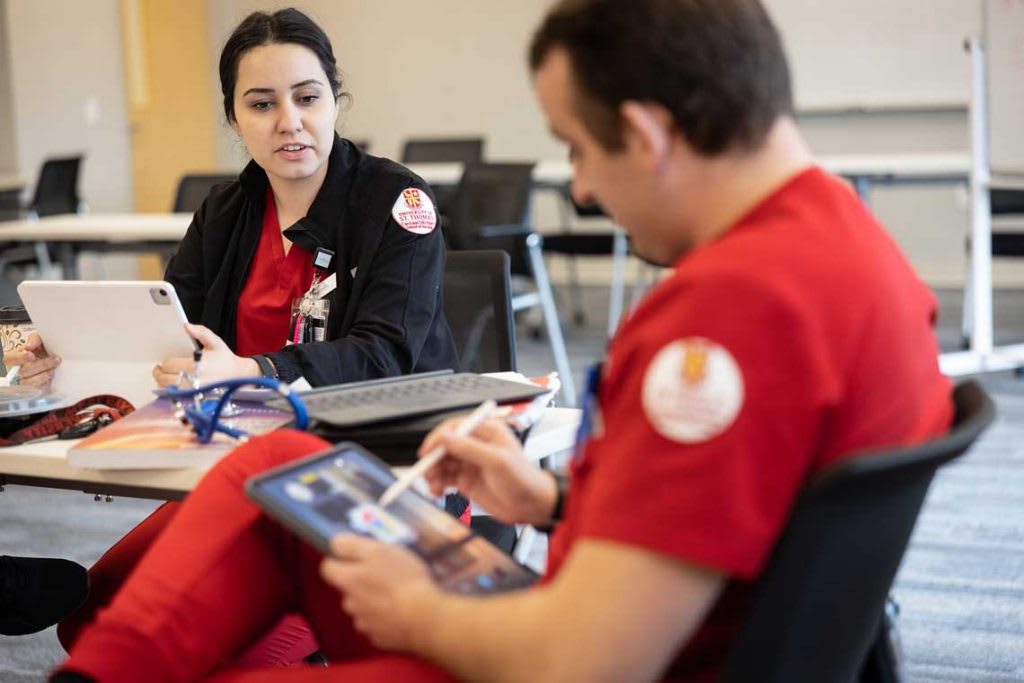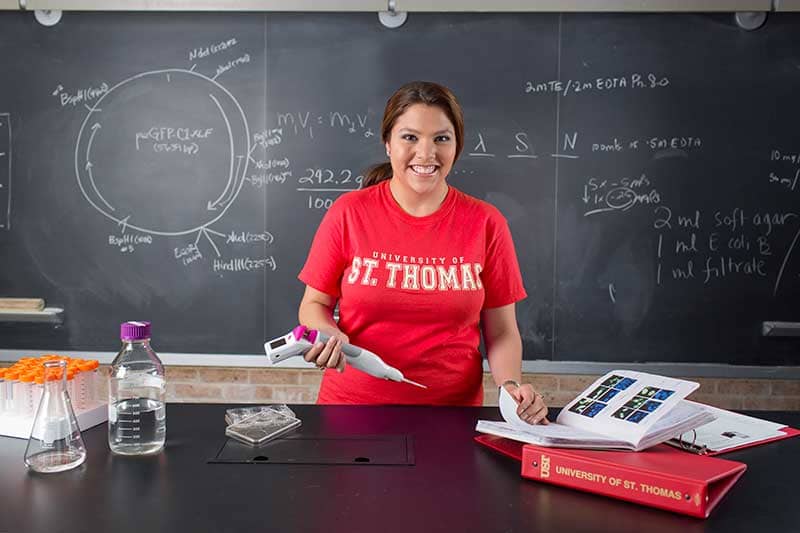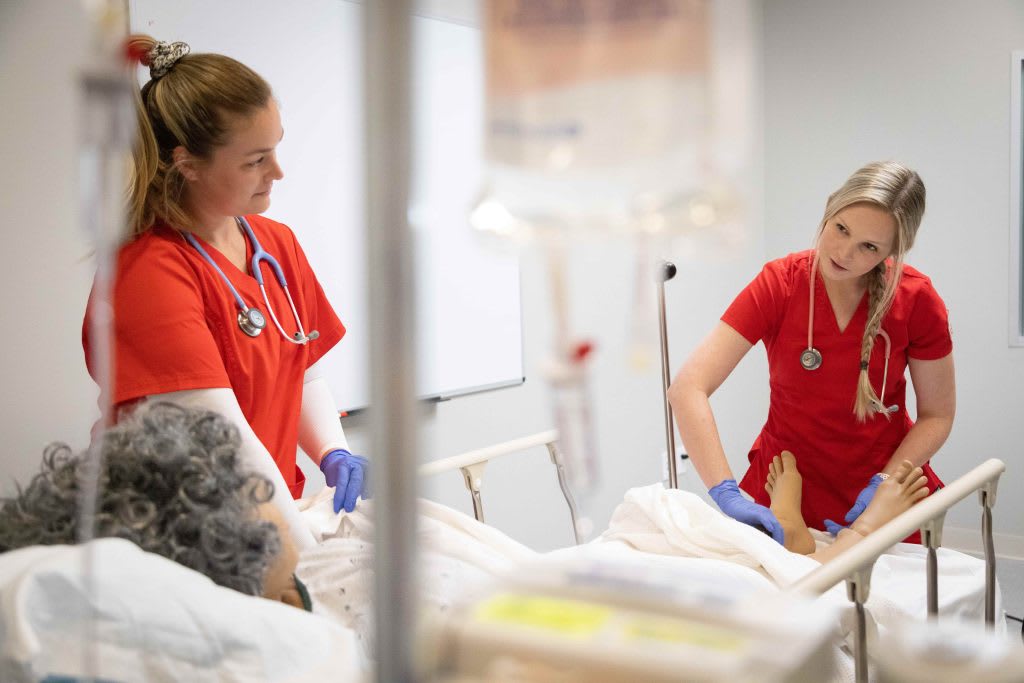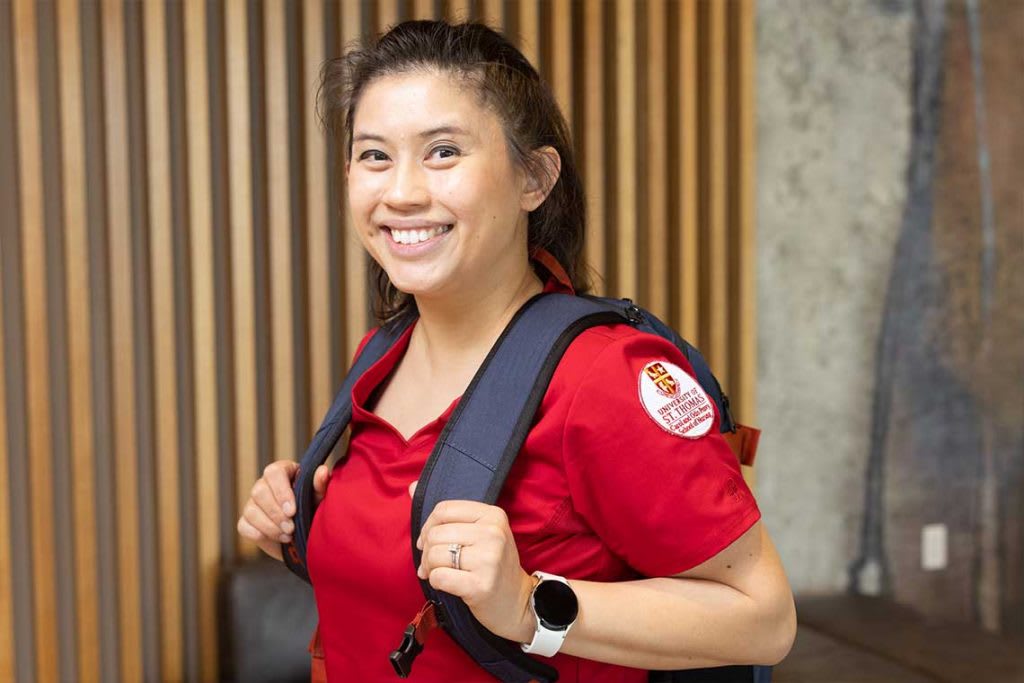Is Nursing School Hard? 7 Things About Nursing School You Should Know
Each blog post is dated and contains accurate information as of that date. Certain information may have changed since the blog post publication date. If you would like to confirm the current accuracy of blog information, please visit our ABSN overview page or contact admissions at (855) 830-2713.
Is nursing school hard and why? Yes, for many reasons. Nursing school is challenging because of the coursework, which requires competency with science and math and the rapid pace and difficulty maintaining school/life balance. Nursing school tips include practicing good time management and starting NCLEX prep early.

If you’re dissatisfied with your current career pathway and interested in making a change, you might consider pursuing a healthcare career. As a nurse, you would have opportunities to make meaningful differences in the lives of others in your community. Plus, you’d enjoy strong job growth prospects and lucrative salary potential.
Before starting, looking at what to know about nursing school’s various challenges can be helpful. Is nursing school hard? Yes, for many reasons; however, it’s a worthwhile challenge if you are driven to forge a meaningful career. Here, we’ll look at questions like, “Why is nursing school so hard?” and provide some actionable nursing school tips.
Choosing the right nursing program is one of the first steps in setting yourself up for success. The University of St. Thomas Houston’s Accelerated Bachelor of Science in Nursing (ABSN) program offers extensive student support services, including Academic Success Coaches to work with you one-on-one.
Is Nursing School Hard and Why?
So, why is nursing school so hard? There are several answers, such as the challenging coursework and the difficult NCLEX licensure exam. However, nursing school is hard because nurses need to retain vast medical knowledge that can be applied to diverse clinical situations.

On any given shift, a nurse in the ER, for example, might encounter a baby with a persistent cough, an adult with a traumatic brain injury (TBI) and deep lacerations and an elderly patient with dementia and a hip fracture. Nurses must assess patients quickly, make informed clinical judgments, and respond appropriately to each situation.
In other words, nurses are responsible for the lives of their patients. As an aspiring nurse, you will protect and promote your patients’ health, safety and welfare. Nursing school is hard because it’s necessary to ensure nursing professionals can handle all situations they encounter.
The good news is that after conquering the challenges of nursing school, you may head into your first nursing job feeling more confident in your abilities. Let’s explore the factors that make nursing school difficult and how to overcome them.
Before heading to nursing school, you should know a few things about what to expect. Let’s take a look.
1. Applying to Nursing School
Your first nursing school challenge starts before you even begin your coursework. Because our 12-month ABSN program in Houston allows you to earn a second bachelor’s degree in nursing on an accelerated timeline, we must ensure our students are ready to hit the ground running through specific academic requirements.

In addition to holding a non-nursing bachelor’s degree from a regionally accredited university, to be eligible to enroll in UST’s ABSN program, you must:
- Complete the prerequisites for the program before enrollment, which you can do through our university—allowing you to get familiar with our intuitive online platform.
- Have a cumulative GPA of 3.0 or higher (including a 3.0 GPA for all prerequisite science courses).
- Earn a score of 80 or higher on the Health Education Systems, Inc. (HESI) Admission Assessment exam.
Your dedicated admissions counselor will be there to answer your questions and guide you through the application process from start to finish.

For a more detailed look at how to apply for nursing school, check out this blog.
2. Rapid Pace of the Program
A traditional four-year undergraduate program for future nurses is difficult enough, but compressing nursing coursework and hands-on learning activities into a shorter period is even more challenging. UST’s accelerated BSN program is designed to allow students to graduate in as few as 12 months. This is excellent news for career switchers who want to get back to work as soon as possible, but it does mean you’ll need to keep up with a rapid pace.
3. Technical Subject Matter
In addition to the program’s accelerated nature, nursing school can be challenging because of the coursework itself. You’ll complete classes in pharmacology, pathophysiology, holistic nursing, critically ill patients, behavioral health and more.
This highly technical subject matter can be particularly taxing for students needing help with science and math classes. If you’re one of them, you’ll want to put great effort into mastering the curriculum in your prerequisite courses. The prerequisites can help you build foundational knowledge in scientific and mathematical topics. You might also look for supplemental academic material online, such as Khan Academy.

4. School/Life Balance
Another reason nursing school can be challenging is that the accelerated pace of the ABSN program doesn’t lend itself well to good school/life balance. Balance in life is essential for mental health, and strong mental health is critical during a post-COVID world in which many people are still experiencing persistent symptoms of burnout, anxiety and other issues.
During the 12 consecutive months of nursing school, you must prioritize school and your studies ahead of other parts of your life. However, you should look for ways to refresh yourself mentally and emotionally. Exercising outdoors (which benefits both physical and mental health), meeting a friend once per week for coffee and taking a yoga break between study sessions are all ways to create better balance in life despite the intense nursing school schedule.
5. The Need for Long Hours of Studying
Another taxing aspect of nursing school is the long hours of studying required. You must have strong time management skills and personal discipline to succeed in nursing school. Many students struggle with procrastination and maintaining their attention span. One tactic that can address both issues is the Pomodoro Method.
The Pomodoro Method involves setting a timer for 25 minutes (use an app so you won’t have to hear actual ticking noises) and dedicating that block of time to studying, avoiding all distractions. Then, you can take a five-minute break to stand up and stretch. Then, do another 25-minute block of studying. After four work intervals, you can take a 15-minute break.
This method works wonders for combating procrastination because it emphasizes the process of work rather than the results. In other words, you aren’t telling yourself, “If I read this whole chapter, then I can take a break.” Instead, you’re committing to work for a set period without distractions, with the promise of a break soon.
6. Clinicals
As important as studying is for succeeding in nursing school, future nurses must also develop hands-on skills. You’ll work on these in your nursing skills and sim labs and put what you’ve learned into practice during clinical rotations, or “clinicals.”

During clinicals, you’ll begin providing direct patient care. Clinicals can be challenging because you must exercise your critical thinking skills and apply clinical judgment. The good news is you aren’t doing it alone. You’ll be closely supervised by licensed registered nurses (RNs), and your preceptor will be available to answer your questions and provide feedback. It’s important to approach each clinical shift with an open mind, be receptive to feedback, and actively work on improving areas you’re struggling with.
7. Exams, Including the NCLEX
As you work through the nursing coursework, you’ll take periodic exams. You’ll also need to pass the NCLEX after graduation to obtain licensure. Exams can be stressful, but you’ll know about them beforehand to prepare for them. Don’t leave exam prep until the night before a test; set aside study time each day leading up to the date.
The same is true of the NCLEX. Instead of preparing for it after graduation, beginning your NCLEX prep during your first semester in nursing school is best. It’s beneficial to answer practice questions and take full-length practice NCLEX tests.
Starting your NCLEX prep? Here’s what you should know about the Next Generation NCLEX.

Nursing School Tips for New Students
For new students, the first semester of nursing school can be especially taxing. As a new nursing student, you’ll be introduced to new concepts, hands-on labs and many other new experiences. This can seem like a lot to acclimate to, but luckily, there are steps to take to facilitate the transition.
To prepare for your first semester of nursing school, you can:
- Talk to an admissions counselor to determine a start date that will benefit your goals, gain support, and get any questions you have answered.
- Buy a planner or download an agenda app to schedule time for homework, studying and staying on top of deadlines.
- Get to know your fellow ABSN students—after all, they will be experiencing all the same new ideas and challenges and can offer support.
These tips will help you get a head start on being successful in your first semester of nursing school. It’s also helpful to closely examine what you can expect from UST’s ABSN program.
What to Expect from the UST ABSN Program
UST’s accelerated BSN program has a nursing curriculum that combines online coursework with hands-on learning. The hands-on learning opportunities include skills and simulation labs.
These labs allow you to put the information you’ve been learning in class into action in a low-pressure environment. You’ll practice your nursing skills on life-like medical manikins and role play with your peers to understand different symptoms and reactions you may encounter in the field.
The ABSN program also provides opportunities for applied learning during clinical placements.
Here, you will work alongside professionals at top healthcare facilities in the greater Houston area. During this part of your accelerated nursing education, you will gain experience serving diverse patient populations and access a variety of nursing specialties, allowing you to begin planning your specific career pathway.

These experiences and your ABSN coursework can prepare you to enter the field as a practice-ready nurse following graduation and licensure.
Although nursing school is hard, it’s also rewarding. As a UST nurse, you’ll change lives and know you’re making a difference.
Make a Bold Call for Your Future
If you’re ready to kick off your journey toward becoming a nurse, the first step is a conversation with our admissions counselors, who will help you determine if our program is right for you.
The admissions counselors at UST are here to answer any questions you may have about our 12-month second-degree ABSN program. Contact us today to learn more about how we can help you start your nursing journey.
